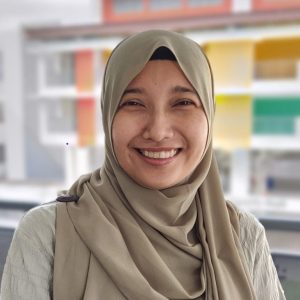Young Children’s Voices in Mathematical Problem Solving
Contributed by Dr Ho Siew Yin and Sng Wei Qin Abbie, from NTUC First Campus, for SingTeach Virtual […]
Read More
Teck Whye Primary School’s “Media Whiz Kids” programme consists of a series of media-making activities included in the school curriculum and it is also offered as part of the school’s co-curricular activities. The programme aims to equip students with media literacy and critical thinking skills that can help them navigate through a variety of digital environments. Two teachers from the school share with us more about the programme and why they think those skills are important.

What are some of the activities that students from the “Media Whiz Kids” programme engage in and how are they assessed?
As part of the “Media Whiz Kids” (MWK) programme, students from Teck Whye Primary School (TWPS) have to participate in activities that require them to develop media contents and products which can be in the form of videos, computer games and 3D prototypes. These activities provide students with the opportunity to apply media literacy skills in authentic and meaningful situations.
When our students participate in the programme, they will alternate between the roles of being a creative media producer and a critical media consumer. Our teachers will facilitate discussions to help the students determine the purpose of their media message, their target audience and the techniques they choose to use for their content or product. Teachers will encourage students to consider the ethics behind their decisions and messaging. In a way, the MWK programme provides teachers with the opportunity to instill ethical values in students as they create content for their audience.
Media literacy skills are soft skills that can be assessed through discussions and conversations. So, students in the MWK programme will engage in self-reflection exercises and receive feedback from peers and teachers about their products. These exercises will help them to think critically and identify areas for improvement.
The Infocomm Media Club, offered as a co-curricular activity (CCA) in our school, is placed under the umbrella of the MWK programme. Our club members are given opportunities to apply their media literacy skills at external platforms such as MOE’s “Our Schools, Our Stories” photo and video contest, the Singapore Youth Festival, the annual Sony Creative Science Award competition as well as the National Thinkers Challenge. These external programmes help to hone students’ media literacy skills further.
In your opinion, why is media literacy important?
I feel that media literacy plays a very important role in the media-saturated world we currently live in. Today, content powered by sophisticated technologies may make it difficult for media consumers to discern facts from opinions or truth from lies. Horror stories of people falling for online scams and children following dangerous TikTok trends have made it evident that media literacy is an essential skill for both adults and children.
As educators, we play a significant role in nurturing critical thinking skills and instilling the right values in our students. We hope that these efforts will help students become wiser users and responsible content producers of media. This is one of the ways TWPS prepares our students to be future-ready digital citizens.
A majority of youths today have an active presence on social media and some even aspire to be the next top influencer. However, they may be unaware of the dangers and pitfalls the digital space poses. I am convinced that media literacy is an important skill that could help students better navigate through the complexities of this digital world.

What are some of the skills you hope to nurture in students when they attend the “Media Whiz Kids” programme?
One of the outcomes we hope to achieve is to nurture confident communicators who will engage others with respect. We also aspire to help every Teck Whyean speak and write confidently, and to encourage mutual respect in any and every interaction they have.
This would entail:
In the hope to enhance Teck Whyeans’ media literacy skills, the school has introduced a variety of Applied Learning Programme (ALP) media-related lessons for English, Mother Tongue and the Aesthetics subjects. There are several media-making activities curated for CCAs, such as the Infocomm Media Club and English Culture & Language Club, with the aim to sharpen students’ media-literacy skills. We want to ensure that our students are not only critical media consumers but also creative media producers who can meaningfully participate on digital and non-digital platforms.
In your opinion, why is media literacy important?
We are living in a world where interactions with the media are more prevalent than ever. These days, children are exposed to various forms of media at a very young age. In schools, educators and students use media extensively to enhance teaching and learning. It is safe to say that we leave behind our digital footprints much more than our carbon footprints.
Hence, media literacy is definitely a vital skill every individual needs to possess. The ability to be discerning readers and critical thinkers as well as the capacity to recognize different points-of-view and respect others’ opinions are necessary in today’s highly inter-connected world. As an educator, I see the need to equip our students with these skills to understand the messages they are receiving and the ethical ways for producing their own media.
Subscribe to our newsletter to receive the latest information about our articles and events. Email us at sgteach@nie.edu.sg for assistance.
On topics related to teaching and learning, we invite you to contribute articles that focus on the following:
We welcome contributions that explore how educators are shaping the future of learning in a rapidly changing world marked by technological advancements and global challenges.
If you have a classroom or education research story to share, we invite you to send in your contribution articles.
Submit your contribution here:
SingTeach complies with the Personal Data Protection Act 2012 of Singapore
For questions, please contact the editorial team: sgteach@nie.edu.sg
